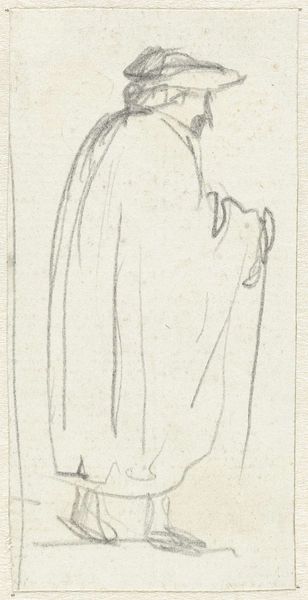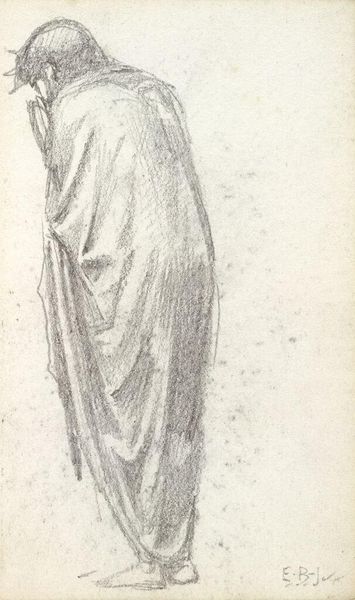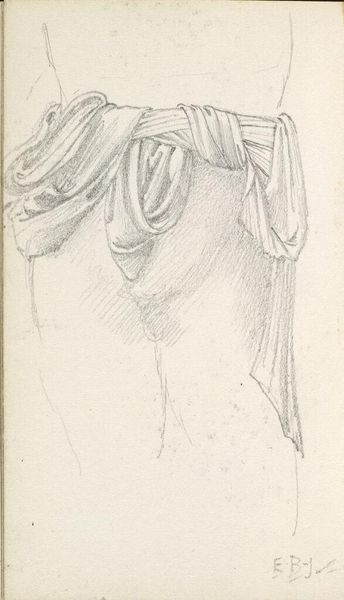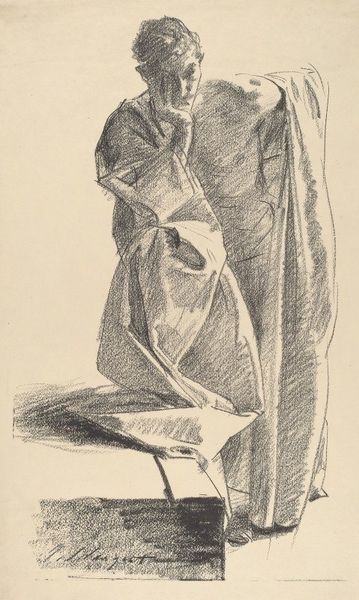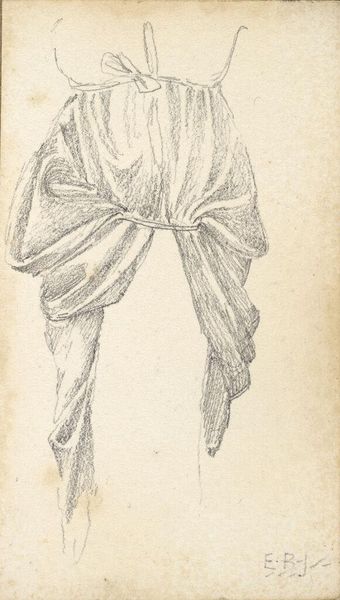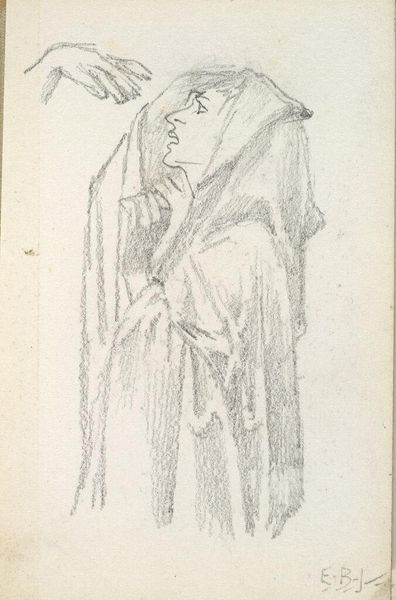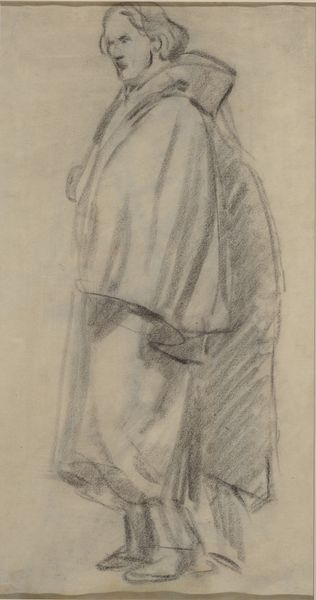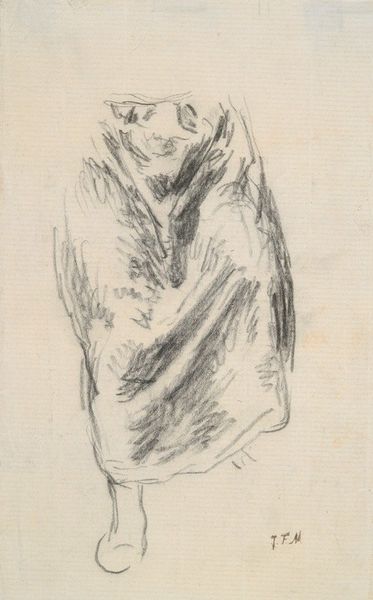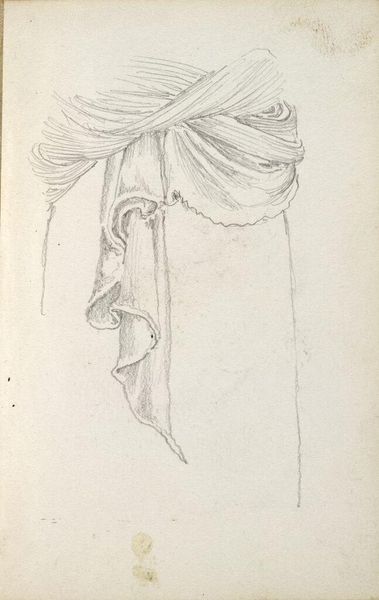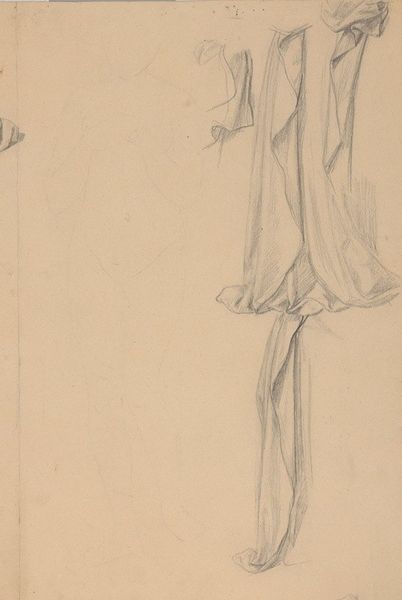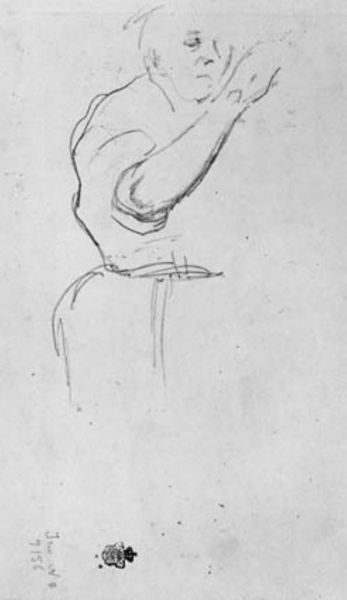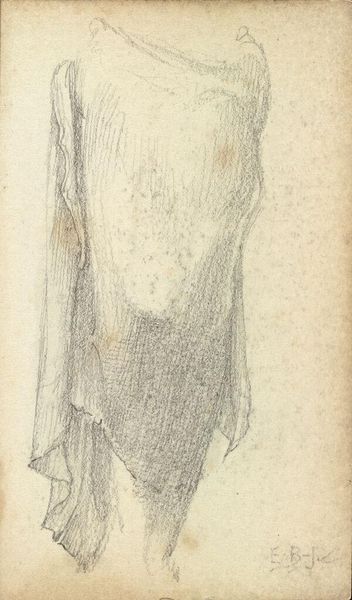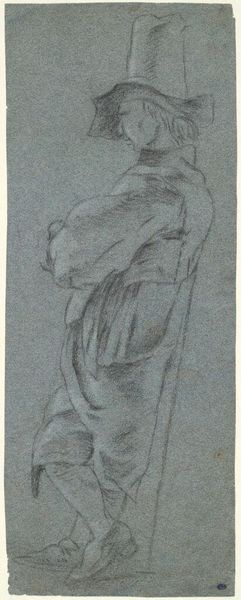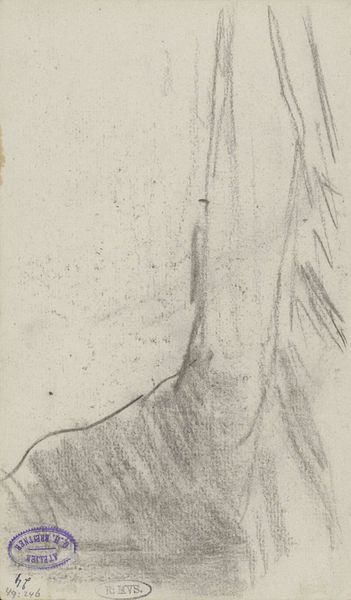
drawing, pencil
#
portrait
#
drawing
#
figuration
#
pencil
#
academic-art
Copyright: Public Domain: Artvee
Henri Lehmann created this drawing of a draped male figure in 1859, using graphite on paper. Graphite, in its essence, is pure carbon, the same material as diamonds but arranged in a way that makes it soft and easily transferable to paper. Here, Lehmann skillfully uses the graphite's qualities to render the weight and texture of the fabric, focusing on the fall of light and shadow across the draped form. You can see how different pressures create darker, more intense lines, giving depth to the folds and contours of the garment. The strokes are economical, capturing the essence of the drapery with an immediacy that suggests a rapid study. Drawing like this has a long history, as a foundational skill for any artist before the age of photography. The very act of sketching with graphite—a relatively inexpensive and readily available material—democratizes the artistic process, making it accessible for practice and preliminary work. Lehmann's drawing reminds us that even in quick studies, the material and the hand of the artist come together to give form and meaning to the subject.
Comments
No comments
Be the first to comment and join the conversation on the ultimate creative platform.
